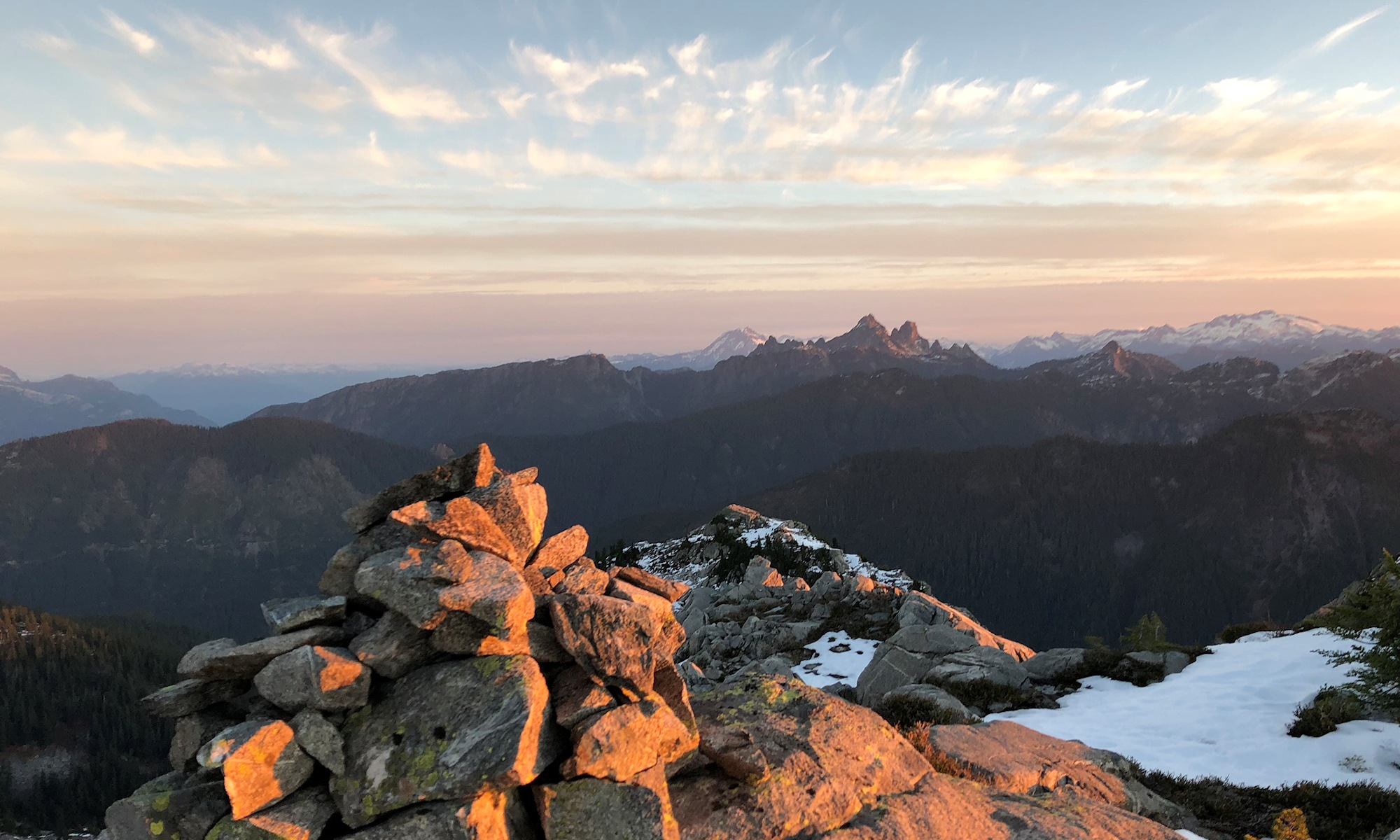Monday, the 30 July, 2018, I hiked up to Wedgemount Lake, in Garibaldi Provincial Park, intending to stay for three nights. The hike was rather grueling, and was done in very hot, sunny weather. Distance was about 7 km (just under 5 miles), according to all the websites I read (I didn’t bother tracking it on my GPS) with an elevation gain of almost 1200 m (4000 feet).
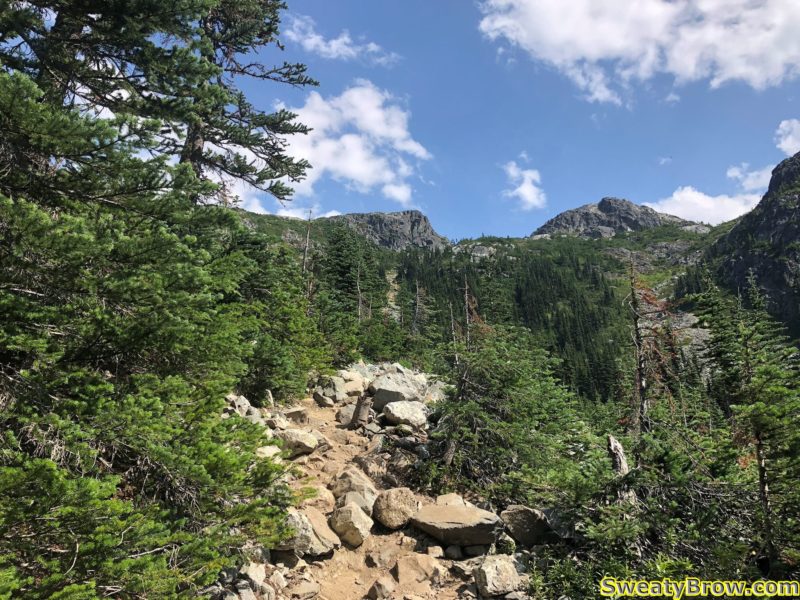
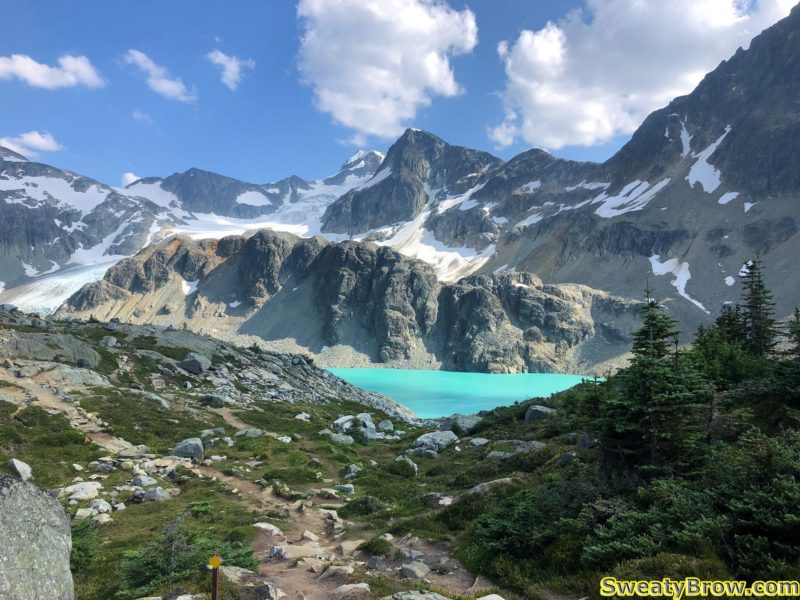
It took me 2 hours 45 minutes to the hut, and another 1 km along the lake (in 15 minutes) to get to my camping spot. The lake is just gorgeous, set within a circle of imposing mountains – to the southeast, Wedge Mountain, the highest mountain in Garibaldi Provincial Park, with Parkhurst mountain to the west of it, and the imposing Mount Rethel directly south of the Wedgemount Hut itself. To the northeast is Mount Weart, the second highest peak in the park, after Wedge. From much of the lake, the peak itself is not visible, due to a subsidiary peak (very daunting, itself) in between. And west of Weart is Mount Cook, directly north of the hut, which appears as a large ridge dominating the northern skyline.
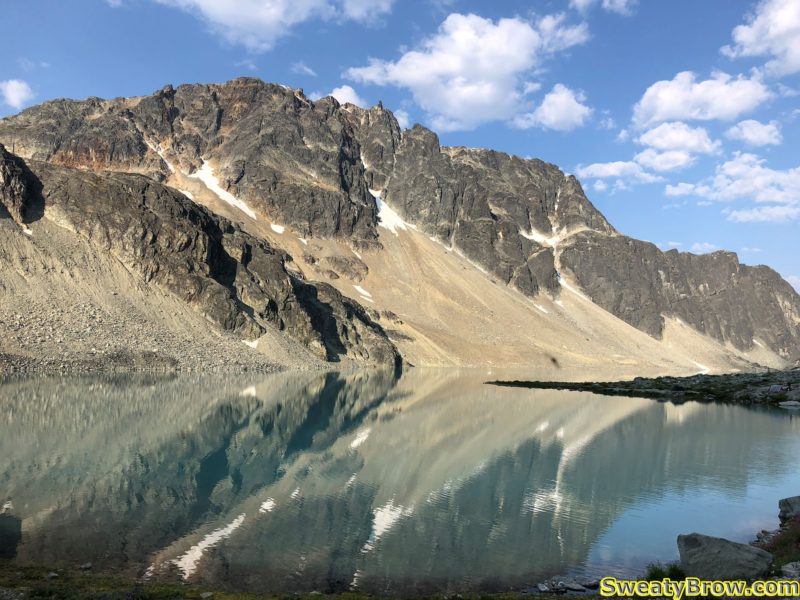
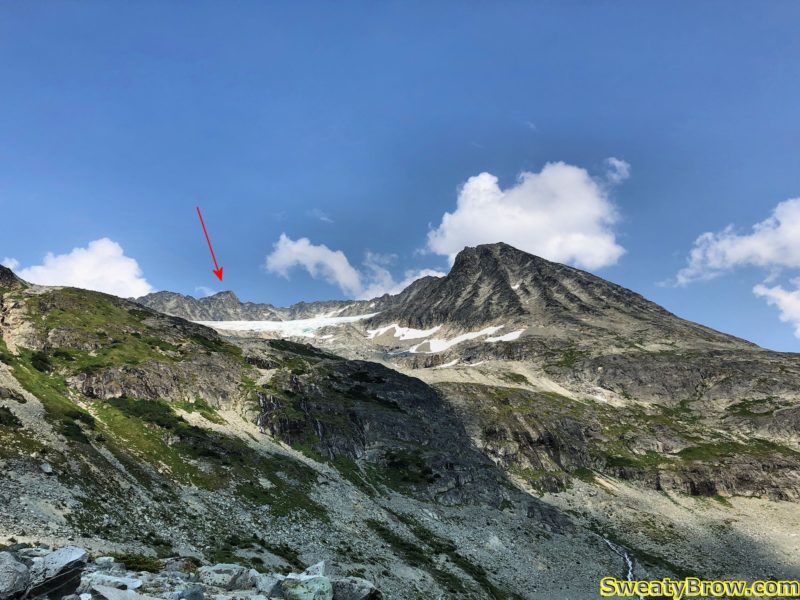
On Tuesday morning, I hiked up to Mount Weart, which tops out at 2835 m (9301 feet). The round trip was a little over 7 km, with a gain (and subsequent loss!) of almost 980 meters. The trip took 7 1/2 hours, of which an hour and a half was spent on the summit (enjoying lunch, taking photos, re-applying sunscreen, and generally soaking up the ambiance).
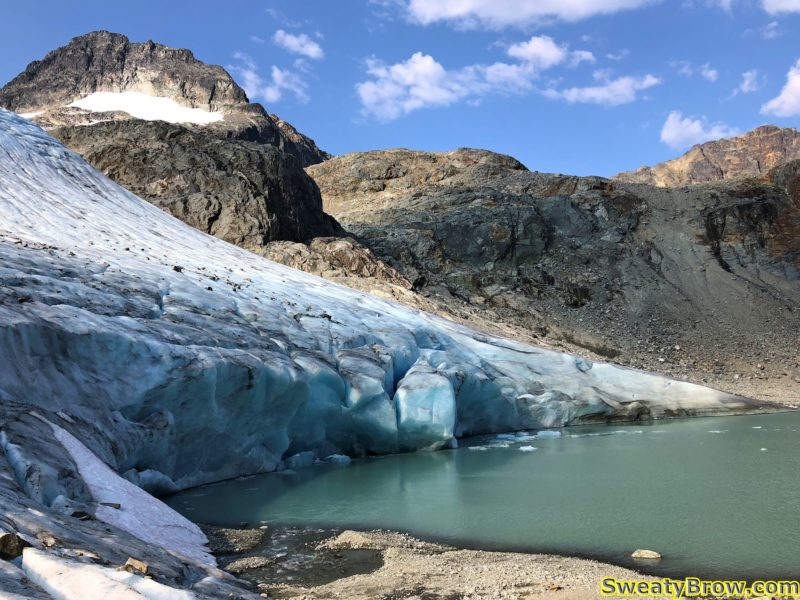
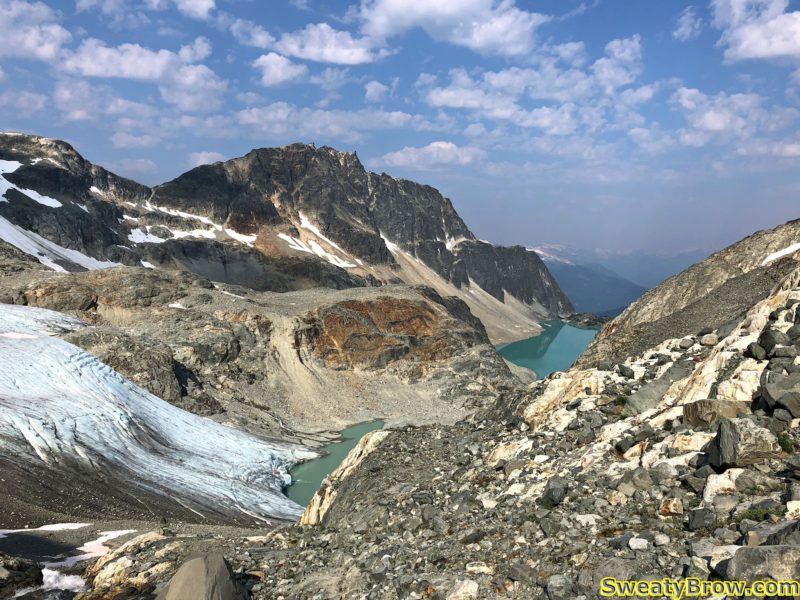
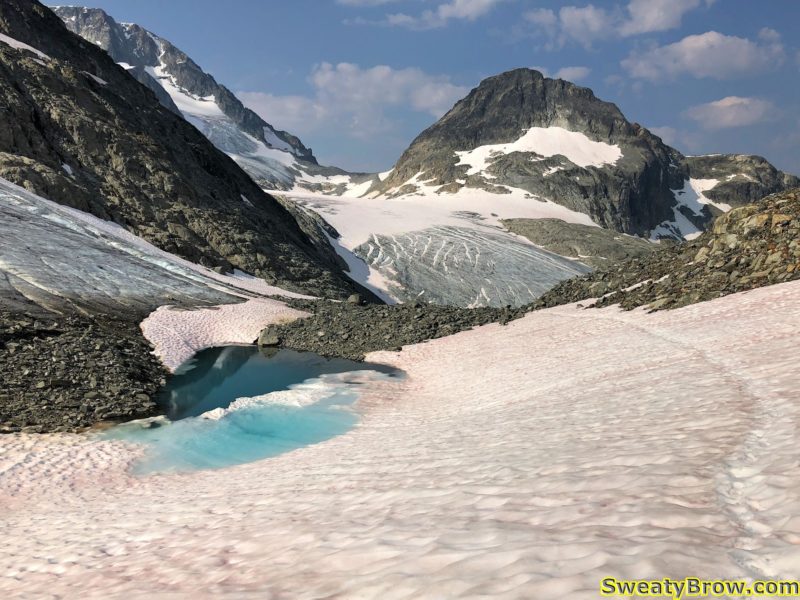
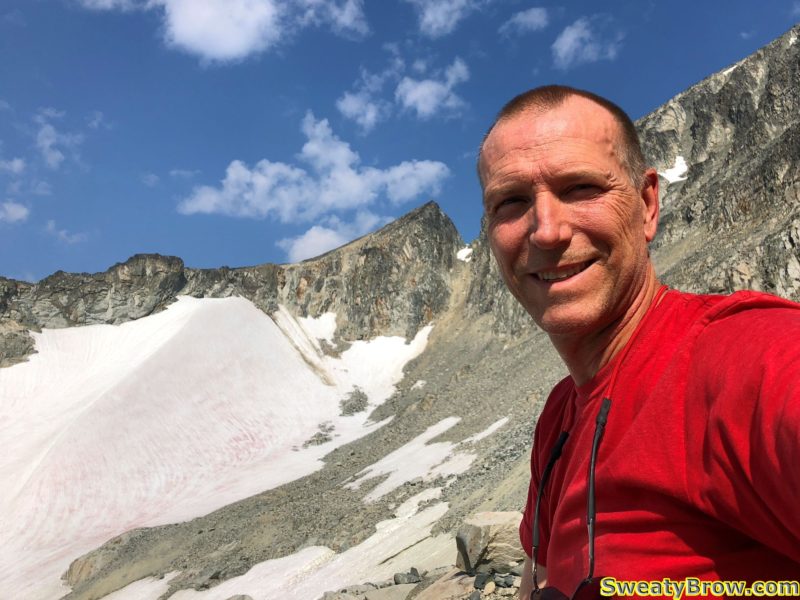
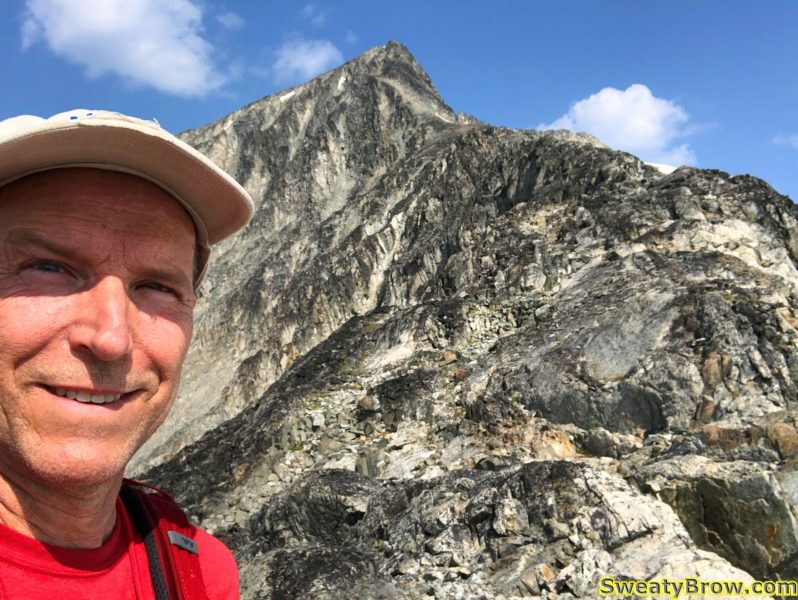
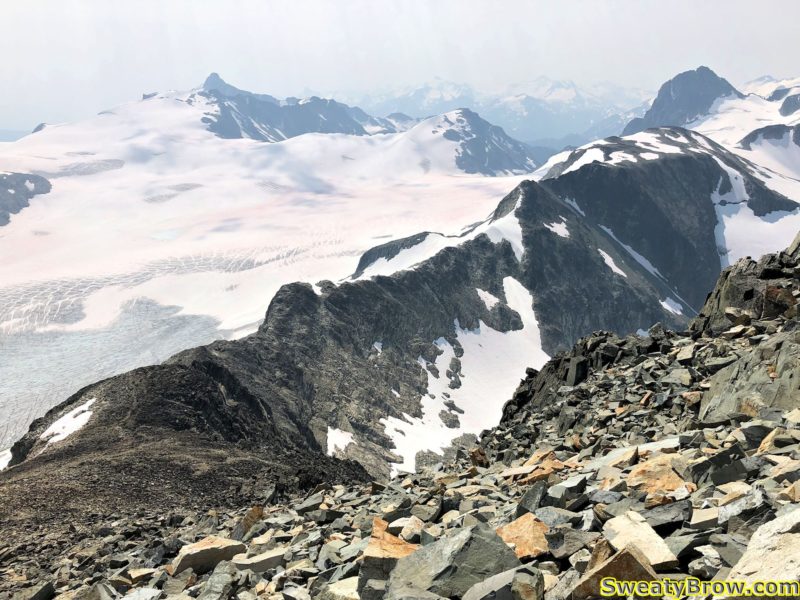
On the summit, I took some photos, and sat to enjoy lunch. I also discovered that I had cell service, so I contacted my wife, and then posted a photo to Instagram. (Did it really happen, otherwise?)
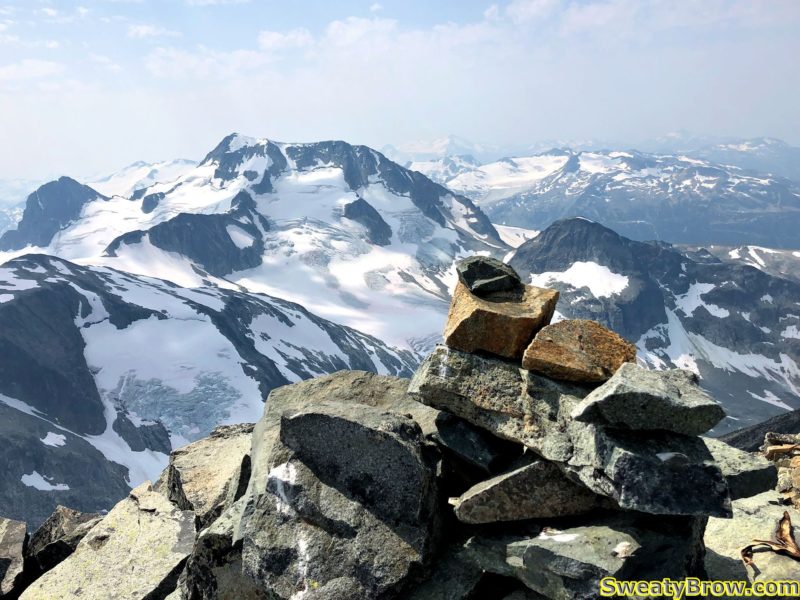
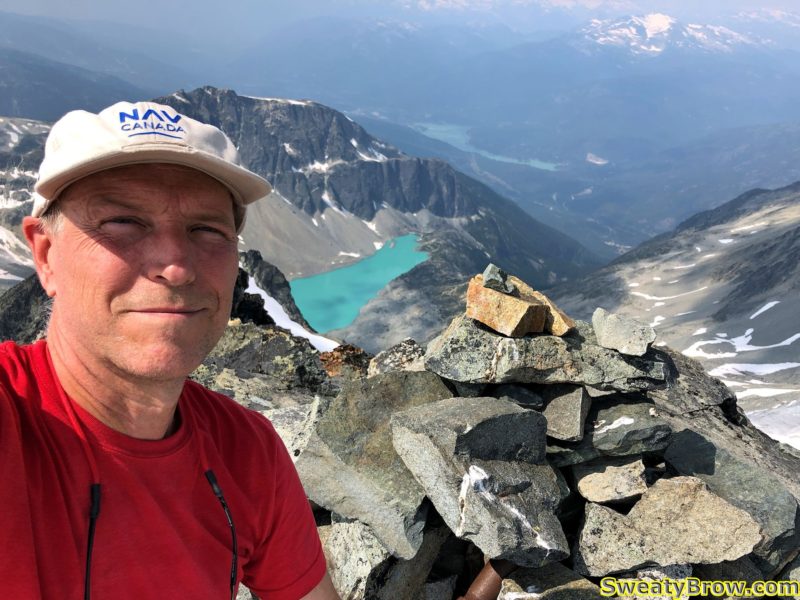
I also met up with a couple that arrived a little while after me, at the summit of Mount Weart. We had discussed, down at the lake, whether they had time to do the hike or not, since they had commitments later that evening, in Whistler. They decided to give it a go, and were glad they did! I think they ended up being late for their barbecue, but it was, most assuredly, worth it!
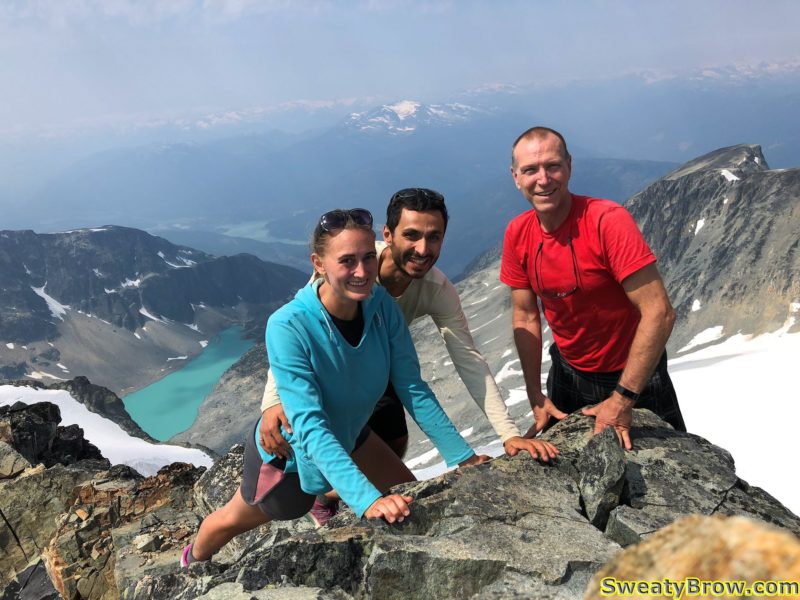
The trip back down the mountain was fairly arduous, and took almost as long as the ascent. I started down just after these new friends, and caught up to them on the ridge. We walked for a while together, but they stopped for a while when we reached the snow slopes below the headwall.
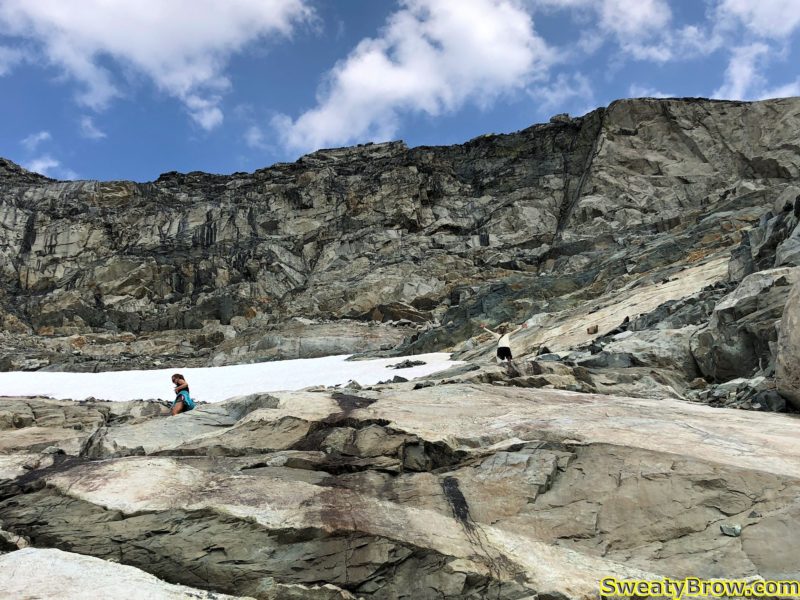
I continued on my own, checking behind me once in a while, seeing how they were progressing as well. There was a lot of very loose rock, particularly just below those snow slopes. At one point, I felt a large boulder that I stepped on begin to shift, and I leapt forward to firmer ground. The boulder let loose, and carried another, both of them about 75-100 cm in diameter, downhill. They hit some larger rocks 10 meters down the slope, an shattered into pieces. I hit my foot hard when landing on solid ground, and still feel the bruising in my heel while writing this 10 days later… Could have been much worse!
When just reaching the edge of the glacier, and prior to the route turning further west (where I could no longer see them), I watched until the other guys got below what I considered to be the trickiest part of the route – a series of cliffy steps beside a steep waterfall. When they appeared to be past the worst of that, I continued along much easier terrain back to camp. I saw them head past my tent a while later, looking tired, but very pleased with the day!
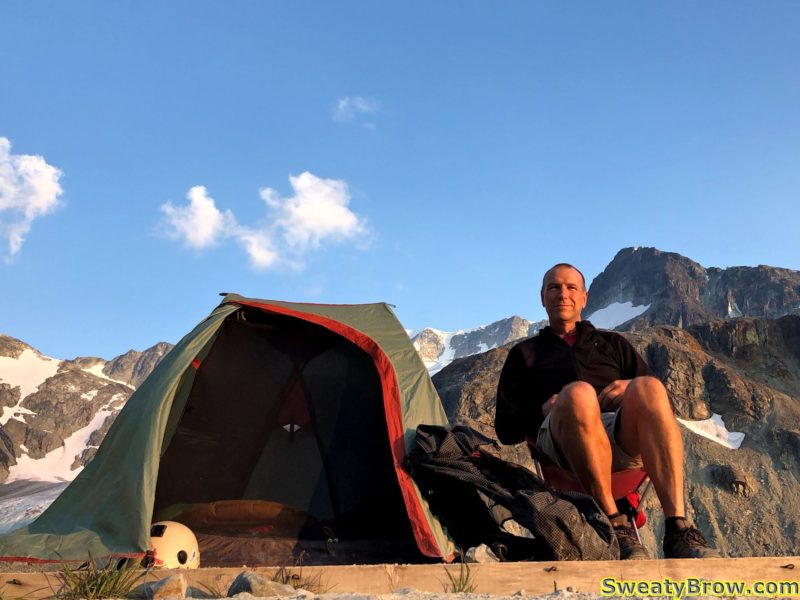
For the first time, I carried my lightweight camp chair (only $26 USD on Amazon.com!) on a backpacking trip. Light, small, and comfortable. Unfortunately, the horseflies were ferocious while at camp, and the wind just wasn’t strong enough to keep them off – and Deet was useless. I ended up spending most of my time inside the tent, despite the heat. (I had to lift the edges of the tent fly significantly for better ventilation from the occasional wafts of breeze.)
Wednesday morning, I was planning to head up Mount Rethel. It is located on the other side of the lake, and requires you to cross the outlet of the lake, then cross a long scree slope along the lake, before heading up some steep snow slopes. I packed up my ice axe and micro-spike trail crampons, and set you. After about a half an hour of hunting around, I finally found my way to the lake’s outlet.
Unfortunately, the traverse of the outlet was a little more than I had bargained for. I was hoping for a few boulders that I could carefully negotiate. What I found was either: 1) lower down, a raging torrent with huge gaps between boulders, or 2) higher up, a wide (15-20 m) expanse of shallow (maybe 15-20 cm), slower moving water with jagged, rocky footing. There really wasn’t a spot that I could “boulder hop” across. If I had had some sandals/crocs and maybe hiking poles, I would have crossed it, but there was no way I could do it in bare feet. The footing was too sharp, and if I lost my balance and fell, there was a chance I could be quite hurt, or worse, carried into the torrent below.
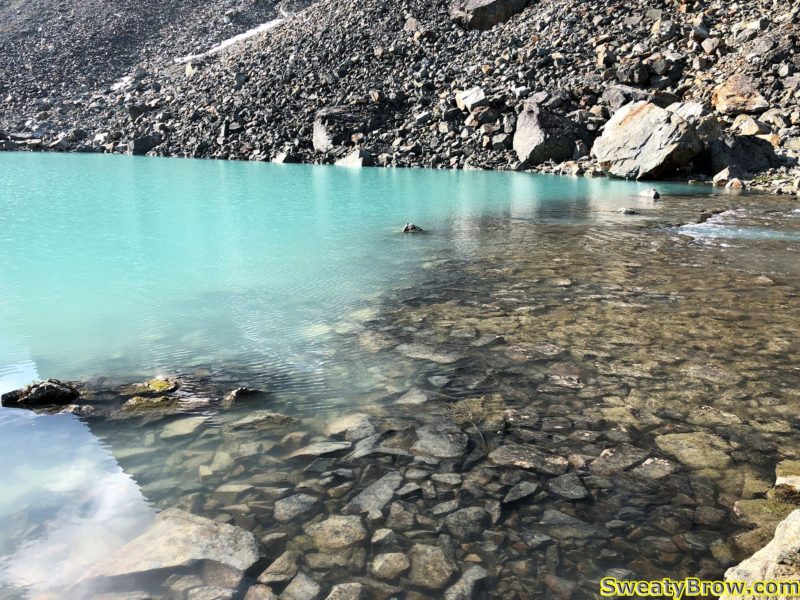
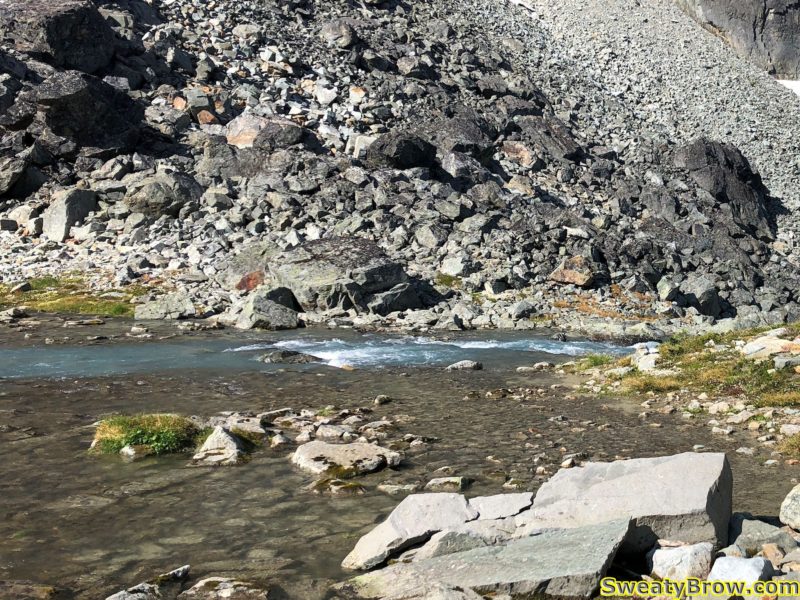
I decided to change my goal for the day, and head up Mount Cook. It was the mountain that I had planned to hike up on Thursday morning, prior to hiking packing up and hiking back to the car. I turned around, and started up Cook instead. Unfortunately, I carried the extra weight of the trail crampons and ice axe, which would not be needed on that hike. Oh well…
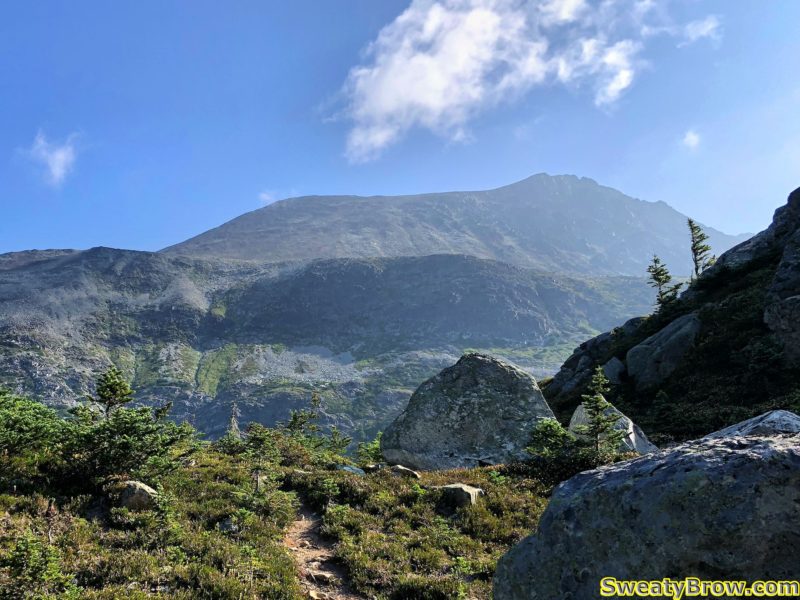
The other problem with the change in destination is that I didn’t bring the beta along with me. Now, the beta was pretty simple – along the lines of, “go up a junipery and bouldery gully to a scree slope, go uphill, turn right, and keep going.” But there was a photo of the approach, with an arrow, giving the gist of the route. I didn’t have that with me – and I got it wrong…
To begin with, the route I took was fine. I headed back past the hut, and followed a trail toward the slopes heading north. On the way, a trio of marmots curiously peeked at me…
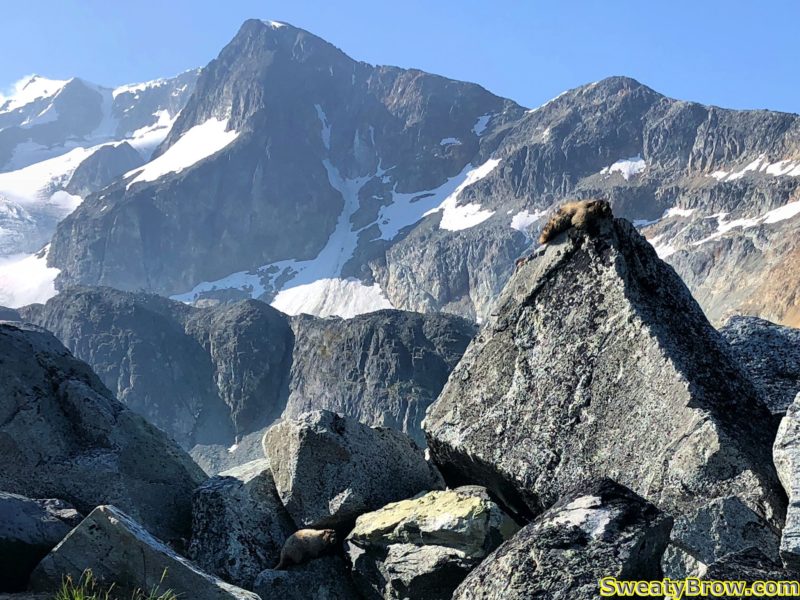
Turns out I went too far left, too soon. The route I took got me there, but it was not pretty. Lots of bashing through a nasty bunch of scrubby tree, with terrible footing around them, then up a super steep meadow with boulder chutes, to reach the proper ridgeline.
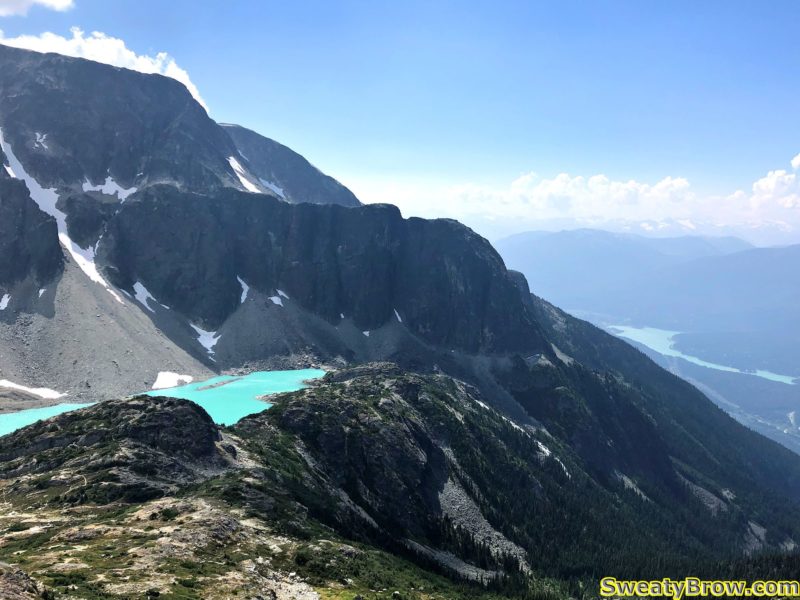
And speaking of the ridge – it is truly ugly. I have slogged my way up some nasty slopes before, but this was one of the nastiest, slipperiest, most prolonged slog-fests I have ever experienced. In some sections, it felt like every step was about to bring the entire mountain down around me.
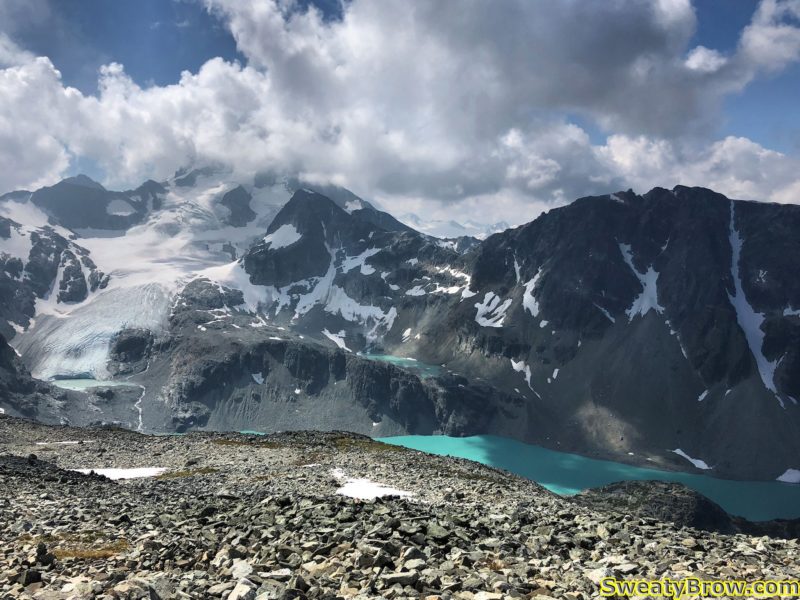
The steep ridge brought me to the “west summit”, after which the gently ascending line to the main summit was much nicer. There was even a nice notch to drop down into, and scramble up the other side – that bit was actually quite fun.
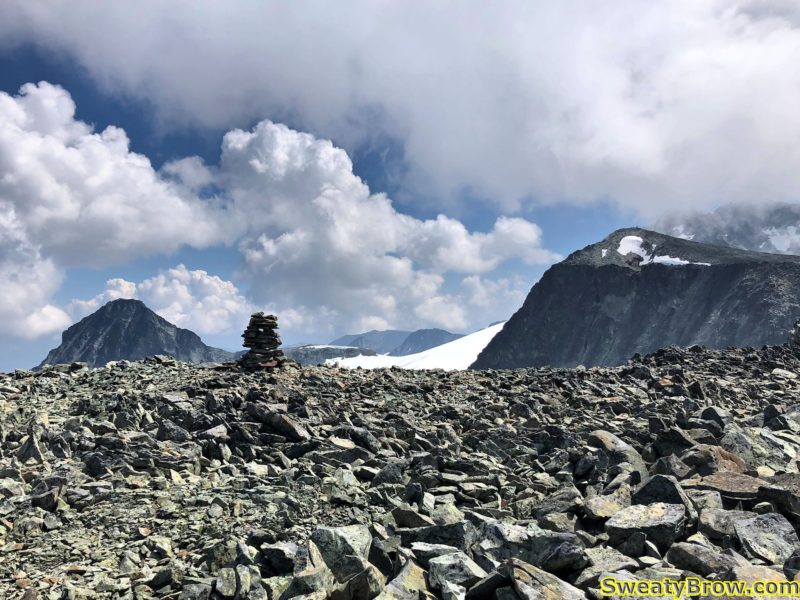
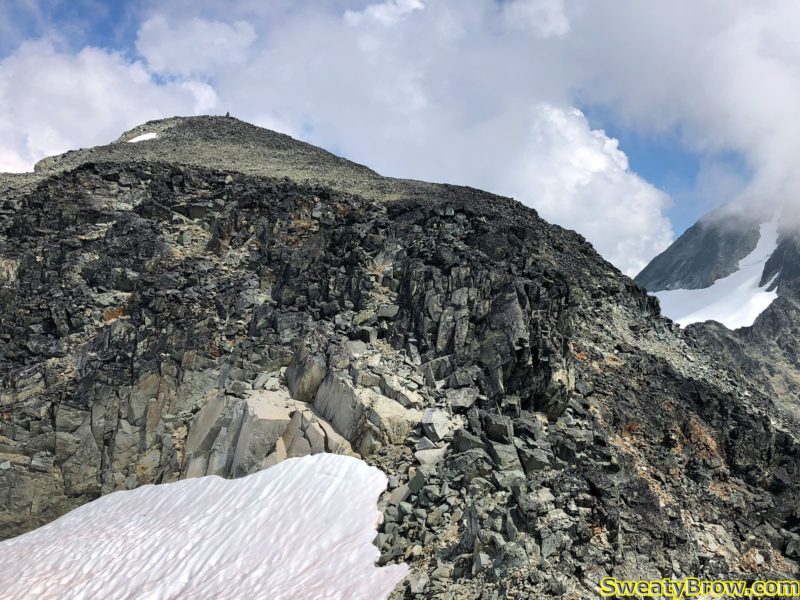
The summit of Mount Cook has great views, but there was a lot of cloud coming into the area from the southeast. Weart played peekaboo through the inconsistent cloud – now you see me, now you don’t. I was glad I’d been up there the day before, rather than this day.
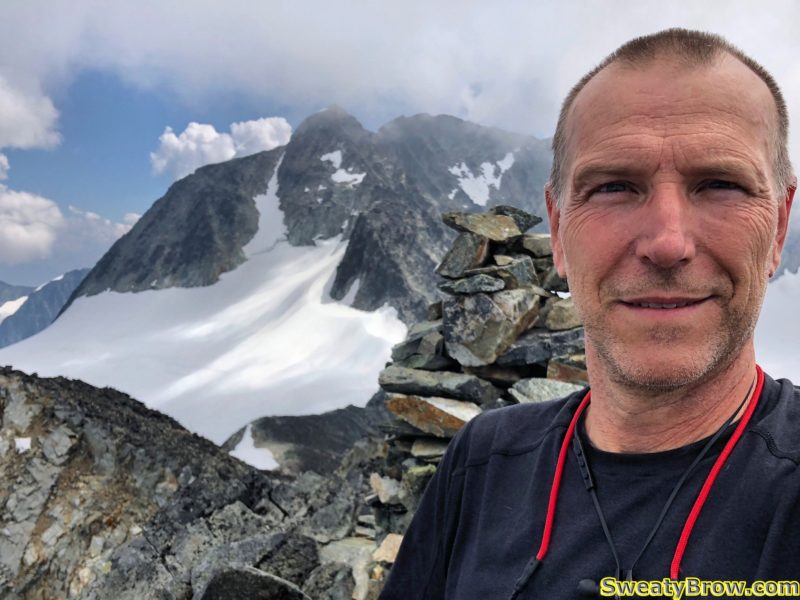
After a few selfies and an Instagram post (yeah, I’m that guy, I guess) I started back down, with hopes of finding the correct route, this time. Just as I approached the West Summit again (about to drop down the steep stuff…) the clouds, which had been holding well above me up until now, suddenly threatened to sock in the hill. A big, thick mass came at me, and for a moment everything became very dim. Fortunately, that single low-lying cloud moved on, and I was in the clear again.
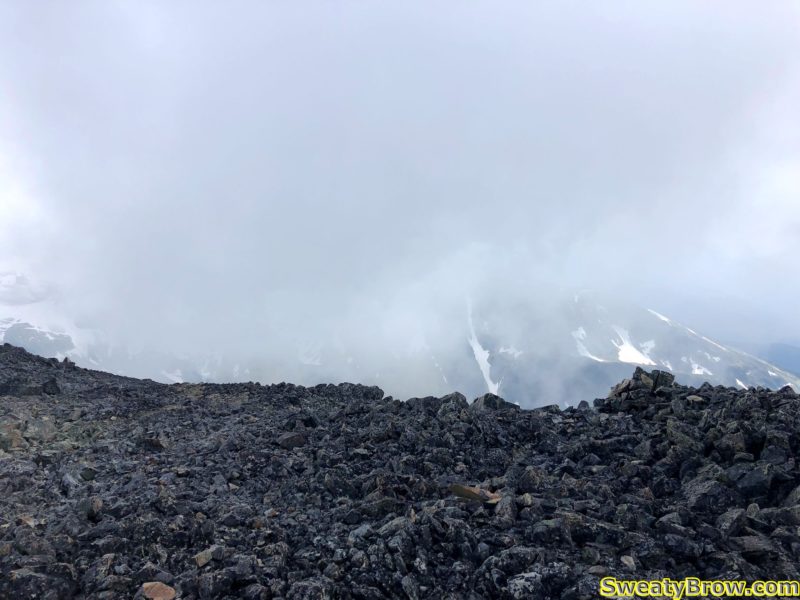
Long story only slightly less long, I did manage to find the correct route down, and the return to the lake was much more pleasant that the approach had been.
Total travel time up (although this includes the time exploring the option of crossing the lake outlet toward Mount Rethel) was about 3 hours 50 minutes (!!) – for a hike that is listed as 1.5-2 hours up, in the guidebook. That covered a total of 5 km, and almost 800 m of ascent. The return trip, on the other hand (via the correct route) was just under 3.5 km, in 2 hours.
When I got back to the lake, I decided that I might as well pack up and head back down to the car, rather than staying the one additional night I had planned. I was not going to be ascending another peak in the morning, and I still had lots of time to get back down. In addition, in bashing through the mini trees while off-route in the morning, I had managed to get tree sap all over my hands and forearms, as well as on the front of my knees and thighs. I really didn’t want to get that stuff all over my quilt, and I didn’t have any faith that I’d be able to wash it off without soap.
So, that’s what I did – packed up, and headed back to the car. The three hour trip up was almost exactly 2 hours in reverse. By the end of the day, including Mount Cook, I’d ascended about 800 meters, and descended over 1900 m.
A long, tiring day, to finish a tiring, but fulfilling trip!
